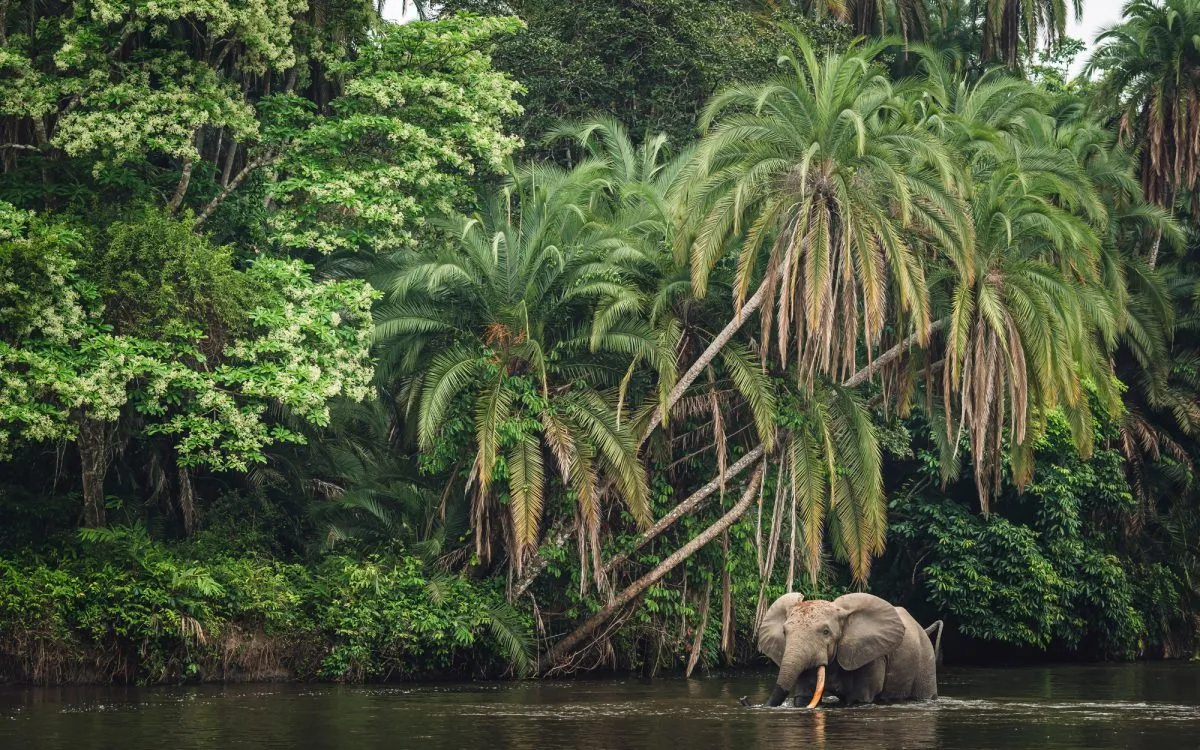This article is part of a series produced in collaboration with the African Development Bank in light of its sixtieth anniversary. Please visit our dedicated portal to read about the Bank's history and its activities on the continent.
A new report from the African Development Bank shows how Africa’s natural capital is improperly valued, leaving the continent unable to derive the full benefits of its abundant resources.
The report, which is titled “Measuring the Green Wealth of Nations: Natural Capital and Economic Productivity in Africa”, emphasises the need to account for Africa’s abundant natural capital as a critical step toward sustainable development.
Africa is uniquely positioned with significant natural resources, including the Congo Basin, the world’s second-largest rainforest, which accounts for 25% of global biodiversity.
The continent also leads in the production of key minerals, supplying 80% of the world’s platinum, 77% of cobalt, and 46% of diamonds. Natural resources significantly contribute to national economies, such as in Libya, where natural rents constitute 61% of GDP; Angola (30%); the Democratic Republic of Congo (39%), the Republic of Congo (38%), Zambia (35%); and Angola, where it is 30%. However, traditional GDP, as a flow measure, does not consider “stocks of assets” such as natural resources that have not been produced and traded in the forms of economic goods and services in the marketplace. This leads to an undervaluation of Africa’s wealth, misaligned policies, and limited access to green financing.
The report raises concerns about the decline in Africa’s natural capital over recent decades. Using data from the UNEP’s Inclusive Wealth Africa 2024 report, it shows that from 1992 to 2019, renewable natural capital fell by 24%, declining from $229bn to $175bn, while nonrenewable natural capital decreased by 37%, falling from $72bn to $45bn. The decline is even more pronounced on a per capita basis, with cropland values contracting by over 50% and forest ecosystem services declining by 40%. This degradation threatens Africa’s long-term economic sustainability and diminishes its borrowing power, as natural capital is undervalued in global credit assessments.
Carbon’s sequestration opportunity
Africa’s contribution to global carbon sequestration, particularly through the Congo Basin, represents a significant missed economic opportunity. In 2022, the value of carbon sequestration from the Congo Basin alone was estimated at $77bn if traded in compliance markets like the European Union Emissions Trading System. However, reliance on voluntary carbon markets, where prices are substantially lower, resulted in revenues of only $5.5bn for the same region.
Some African countries have demonstrated the potential of natural capital accounting (NCA) to inform policy and drive sustainable development. Ethiopia has established natural capital accounts to support its sustainable land management framework, a critical step in an economy where agriculture contributes 42% of GDP. Uganda has published comprehensive ecosystem accounts that have shaped its National Development Plan III and post-COVID-19 recovery strategies. Zambia has developed forest and land accounts, which have informed its Vision 2030 and emphasised the need for improved conservation investments. These examples demonstrate the transformative potential of integrating natural capital into national policy frameworks.
Bank leads on capacity-building
The African Development Bank plays a key role in advancing NCA across the continent. Through initiatives like the Natural Capital for African Development Finance (NC4-ADF), it is mainstreaming natural capital accounting into policy and finance frameworks. The Bank supports capacity-building efforts by fostering regional collaboration through platforms like the Africa Natural Capital Accounting Community of Practice. It also advocates for the adoption of the System of Environmental-Economic Accounting (SEEA) to enable better measurement and valuation of natural resources.
The report outlines a comprehensive agenda for integrating NCA into African economies. It calls for the mandatory valuation of natural capital to ensure GDP reflects ecosystem services accurately, enhancing Africa’s credit ratings and access to international finance. Strengthening institutions, including establishing NCA units in national statistical offices, is identified as a key step. The report also recommends leveraging green financing mechanisms, such as increasing Africa’s share in the $2.2 trillion global green bond market and compliance carbon markets. Regional collaboration, through platforms like the Africa NCA Community of Practice, can be crucial for sharing resources and knowledge. Aligning NCA findings with national development plans and strategies is also essential for achieving sustainable growth.
Proper valuation of natural capital could significantly enhance Africa’s economic profile. Carbon sequestration alone could increase nominal GDP by $66.1bn, representing a 2.2% expansion on the 2022 figures. In some cases, the impact could be transformative; for instance, in the Central African Republic, GDP could grow by about 340% when adjusted for ecosystem services. By prioritising the valuation and integration of natural capital, African nations can unlock new opportunities for sustainable development, reduce poverty, and strengthen their position in the global economy.

 Sign in with Google
Sign in with Google 



